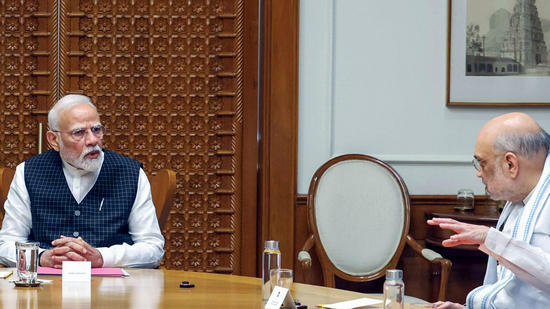India Suspends Indus Waters Treaty After Pahalgam Terror Attack, Major Impact Expected on Pakistan’s Water Security
In a significant geopolitical development, India has suspended the Indus Waters Treaty with Pakistan following a deadly terrorist attack in Pahalgam, Jammu and Kashmir, that claimed the lives of 26 individuals, including several tourists. This decisive move by New Delhi is one among five major punitive actions taken in the aftermath of the terror incident. The suspension of the Indus Waters Treaty, a long-standing agreement signed in 1960 under the aegis of the World Bank, is expected to have profound implications for both countries, particularly Pakistan.
The Indus river system, vital for irrigation and agriculture in the region, comprises the Indus River and its key tributaries. The Ravi, Beas, and Sutlej rivers—referred to as the Eastern Rivers—are allocated to India, while the Western Rivers—Indus, Jhelum, and Chenab—are primarily designated for Pakistan’s use under the treaty. These water resources form the backbone of Pakistan’s agricultural economy, especially in the Punjab region, and the suspension of the treaty threatens to disrupt this lifeline.
Former Indian Indus Water Commissioner Pradeep Kumar Saxena emphasized India’s strategic advantage as the upper riparian state. He noted that India has several options, including the potential abrogation of the treaty itself. Although the Indus Waters Treaty lacks an explicit clause for unilateral termination, Article 62 of the Vienna Convention on the Law of Treaties could serve as a legal basis for India to repudiate the treaty due to a fundamental change in circumstances, such as persistent cross-border terrorism.
With the treaty now in abeyance, India is no longer bound by the restrictive provisions it imposed—especially those related to the design and operation of water projects on the Western rivers. India can proceed with construction and modification of hydropower projects like Kishanganga, Ratle, and others without accommodating Pakistan’s objections. Additionally, India is under no obligation to follow the treaty’s constraints on “reservoir flushing,” a practice that can enhance the efficiency of hydroelectric projects by removing silt but has long been a contentious issue.
Moreover, India is now free to fill its reservoirs at times most beneficial for its interests rather than being restricted to the monsoon period. This could adversely affect Pakistan, particularly during the sowing season when water demand is high. Such actions may significantly impact the agricultural output in Pakistani Punjab, where irrigation largely depends on the Indus and its tributaries.
The suspension also eliminates the operational restrictions concerning the filling and usage of reservoirs, giving India full control over the flow of the Western rivers. Importantly, India can now withhold critical flood data from Pakistan, a move that could have serious consequences during the monsoon season when river swelling is common.
Historically, Pakistan has raised objections to nearly every Indian hydroelectric project on the Western rivers, including major projects like Salal, Baglihar, and Kishanganga. These objections may now become irrelevant as the suspension removes India’s obligation to consider Pakistan’s concerns. Furthermore, India is no longer bound to allow inspection tours from the Pakistani side—another key requirement of the treaty that ensured transparency.
The partition of India and Pakistan divided the Indus Basin between the two countries, making Pakistan the lower riparian and India the upper riparian. The strategic significance of this positioning is now being leveraged by India as a tool of diplomatic pressure. The historical disputes over irrigation projects, like those at Madhopur on the Ravi and Ferozepur on the Sutlej, underscore the long-standing contention surrounding water sharing between the two nations.
As the region braces for the political and environmental ramifications of this move, the suspension of the Indus Waters Treaty marks a pivotal moment in Indo-Pak relations. It highlights how water can become both a weapon and a negotiating tool in times of geopolitical crisis.
For video news on this development, visit our YouTube channel THE OLIGO.

